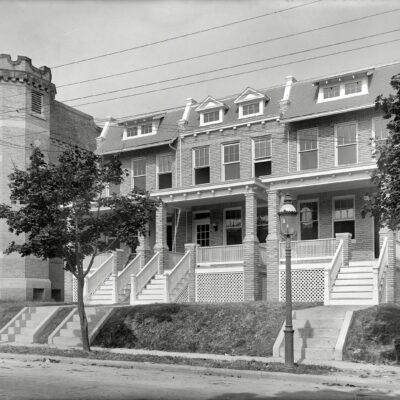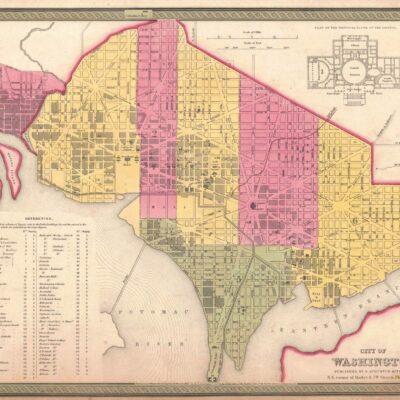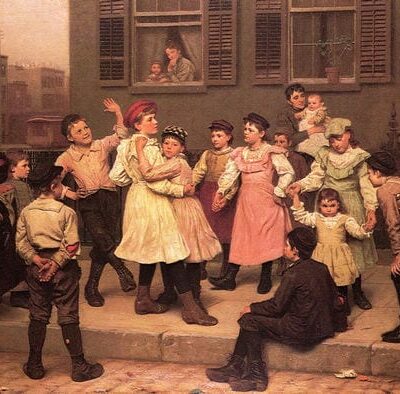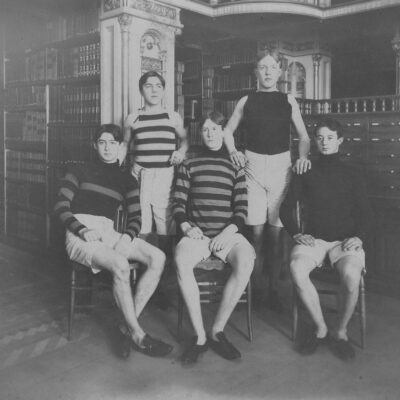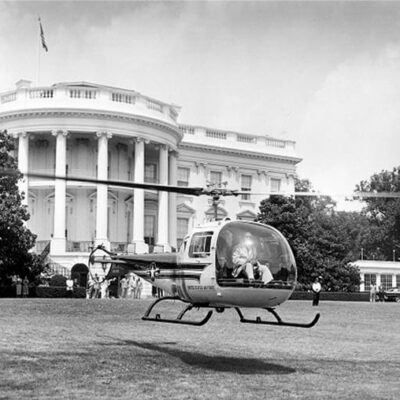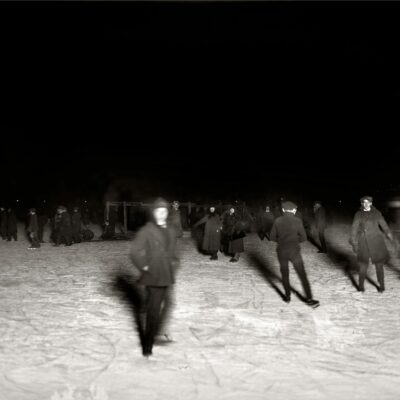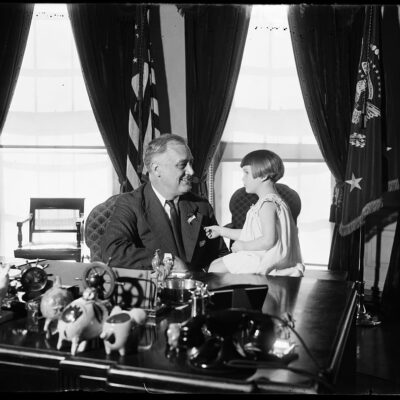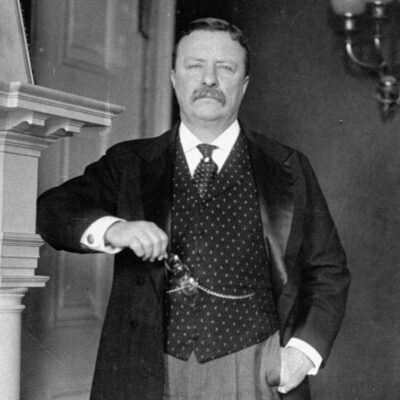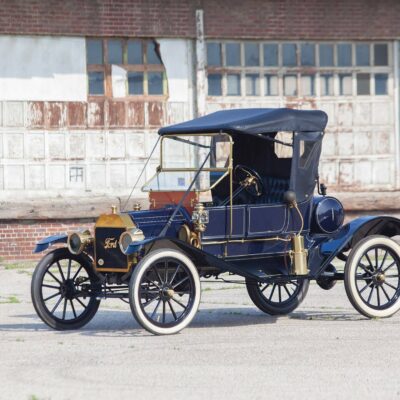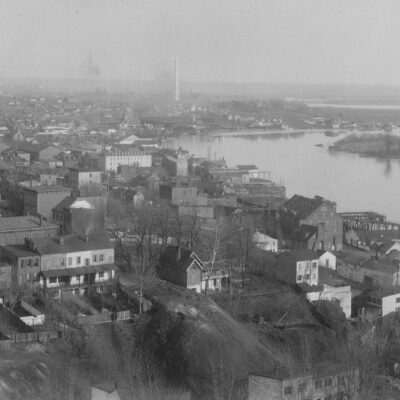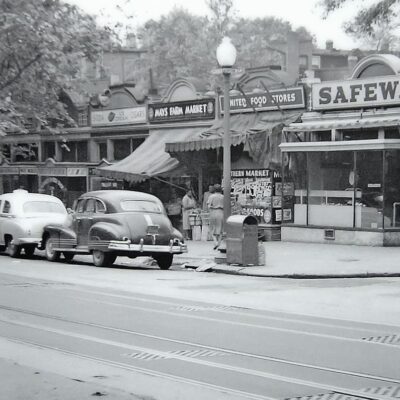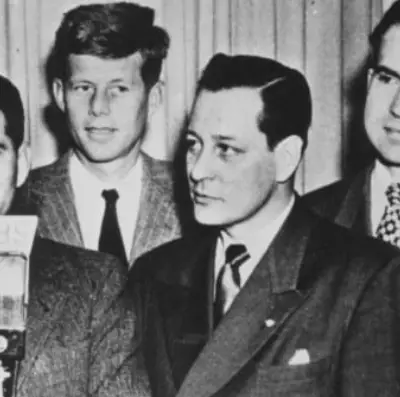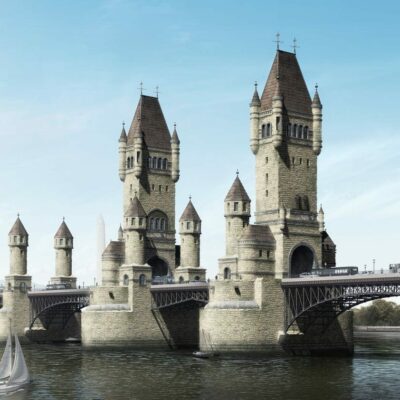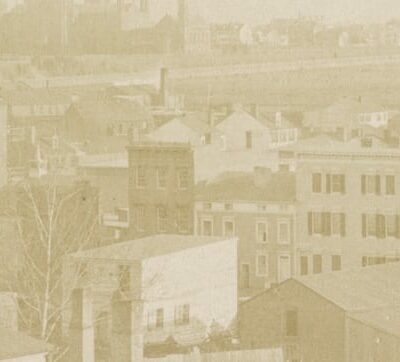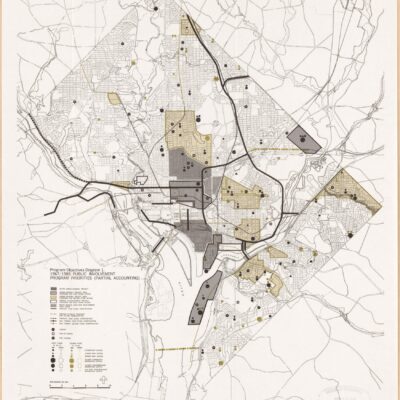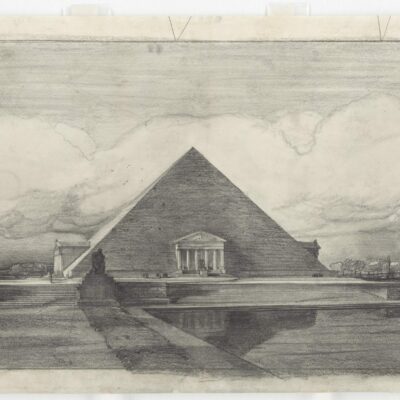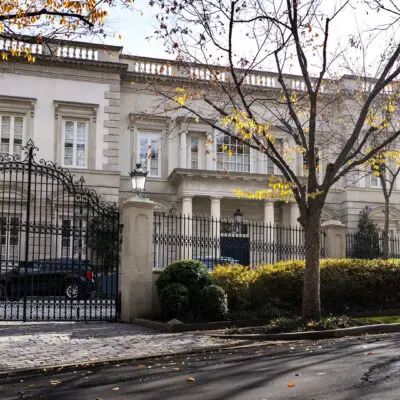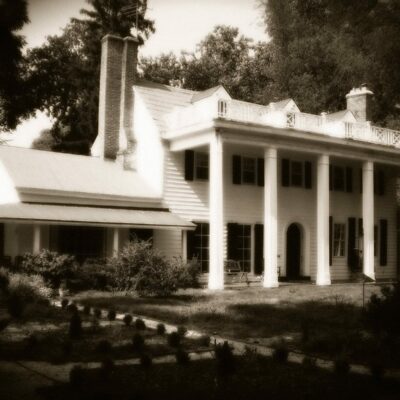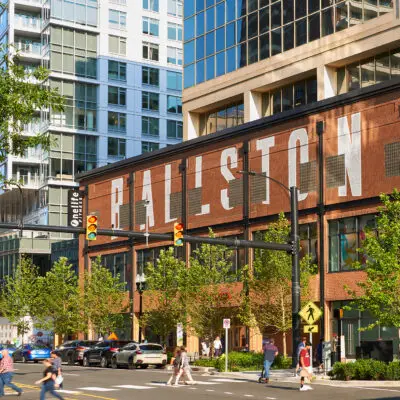This is a guest post by John (from The Lion of Anacostia), cross-posted here.
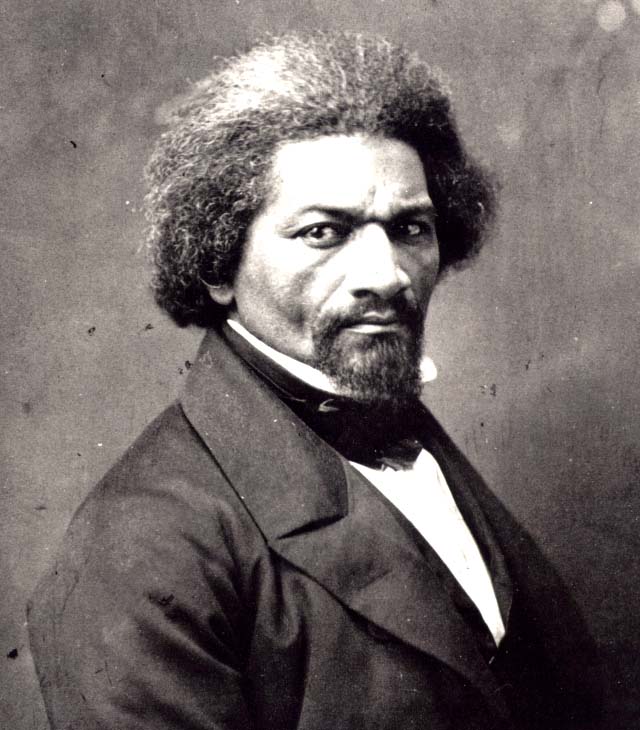
Frederick Douglass was a self-made man about town during his years in Washington. He was a frequent guest of the White House through the various Presidential administrations after the Civil War, he served as adviser to both black and progressive white Senators and Congress men, he often attended and lectured at Metropolitan African Methodist Episcopal Church, helping to raise money.
In between his multiple speaking engagements and travels around the country, Douglass served on the Board of Trustees of Hoard University for nearly a quarter century. On behalf of the University Douglass raised money though appeals to Congress and outreach to the same network of institutions and person that had supported him during his abolitionist efforts before the war.
Douglass’ service to Howard University has been woefully overlooked in the evaluation of his enduring legacy to the city. Through his advocacy and championing of the city’s public colored school system and his lasting contributions to Howard University, Douglass was a steadfast, relentless advocate of equal education efforts for black Washingtonians. His record of charity should no longer be minimized, discarded as an after thought. Douglass service should be explored as a source of pride to the early importances of the education of both freedmen and their children in Washington, DC.
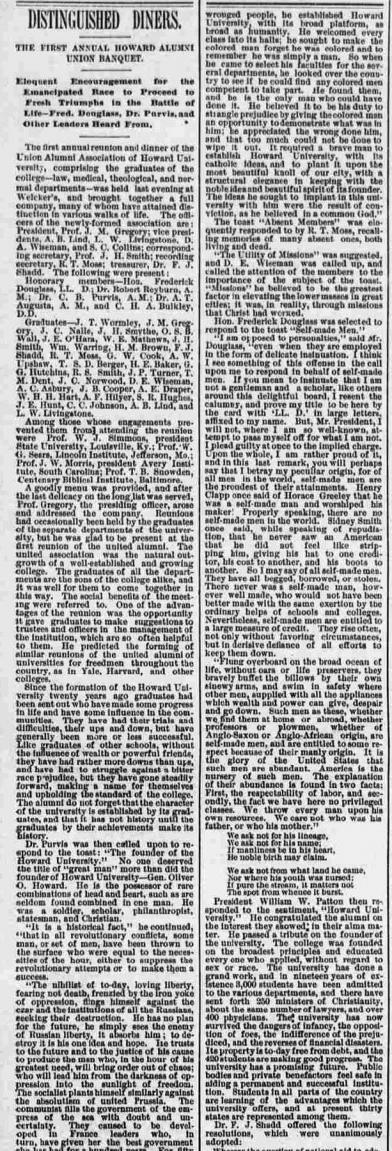
In late February 1886 Howard University, then almost two decades since its charter, recognized its growing network of alumni with its first annual banquet. Douglass attended and was asked to speak. Often called to deliver the featured address, here he offered a toast.
Hon. Frederick Douglass was selected to respond to the toast “Self-made Men.”
“I am not opposed to personalities,” said Mr. Douglass, “even when they are employed in the form of delicate insinuation. I think I see something of this offense in the call upon me to respond in behalf of self-made men. If you mean to insinuate that I am not a gentlemen and a scholar, like others around this delightful board, I resent the calumny, and prove my title to be here by the card with “LL. D.” in large letters, affixed with my name. But Mr. President, I will not, where I am so well-known, attempt to pass myself off for what I am not. I plead guilty at once to the implied charges. Upon the whole, I am rather proud of it, and in this last remark, you will perhaps say that I betray my peculiar origin, for of all men in the world, self-made men are the product of the attainments. Henry Clapp once said on Horace Greeley that he was a self-made man and worshipped his maker. Properly speaking, there are no self-made men in the world. Sidney Smith once said, while speaking of repudiation, that he never saw an American that he did not feel like stripping him, giving his hat to one creditor, his cost to another, and his books to another. So I may say of all self-made men. They have all begged, borrowed,, or stolen. There never was a self-made man, however well made, who would not have been better made with the same exertion by the ordinary helps of schools and colleges. Nevertheless, self-made men are entitled to a large measure of credit. The rise often, not only without favoring circumstances, but in decisive defiance of all efforts to keep them down.
“Flung overboard on the broad ocean of life, without oars or life preservers, they bravely buffet the billows by their own sinewy arms, and swim in safety where other men, supplied with all the appliances which wealth and power can give, despair and go down. Such men as these, whether we find them at home or abroad, whether professors of plowmen, whether of Anglo-Saxon or Anglo-African origin, are self-made men, and are entitle to some respect because of their manly origin. It is the glory of the United States that such men are abundant. American is the nursery of such men. The explanation of the abundances is found in two facts: First, the respectability of labor, and secondly, the fact we have no privileged classes. We throw every man upon his own resources. We care not who was his father, or who was his mother.”
We ask not for his lineage,
We ask not for his name;
It manliness be in his heart,
He noble birth may claim.
We ask not from what land he came,
Nor where his youth was nursed;
It pure the stream, it matters not
The spot from whence it burst
President William W. Patton then responded to the sentiment, “Howard University.” He congratulated the alumni on the interest they showed in their alma mater. He passed a tribute on the founder of the university. The college was founded on the broadest principles and educated every one without regards to sex or race. The university has done a grand work, and in nineteen years or existence 3,000 students have been admitted to the various departments, and there have sent forth 250 ministers of Christianity, about the same number of lawyers, and over 400 physicians. The university has now survived the dangers of infancy, the opposition of foes, the indifference of the prejudiced, and the reverses of financial disasters. Its property to-day free from debt and the 420 students are making progress. The university has a promising future. Public bodies and private benefactors feel safe in aiding a permanent and successful institution. Students in all parts of the country are learning of the advantages which the university offers, and at present thirty states are represented among them.
NOTE: At the time of the address there were thirty-eight states in the country, and Washington, DC as the Federal District, which had been sending students to the University since its earliest days.
Related articles
- Charles Douglass calls swearing-in of Senator H.R. Revels “one of the greatest days” in “the history of this country.” Tells his father “the door is open, and I expect yet to see you pass in”
- Martin Luther King, Jr. and Jackie Robinson Together at Howard University
- Gonzaga, Sidwell Friends, St. Albans and Farewell to a Local Legend
